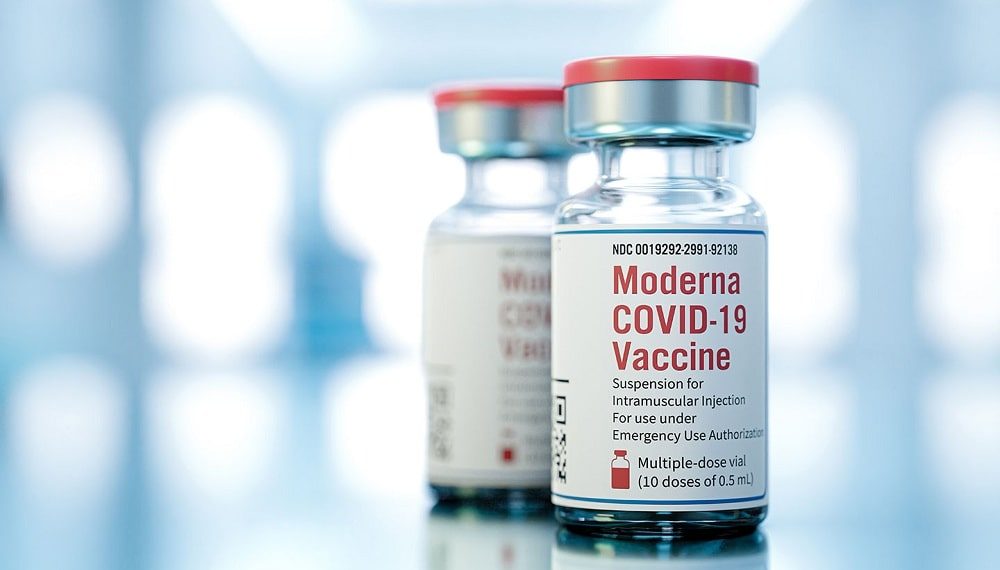Moderna, Inc., a biotechnology company pioneering messenger RNA (mRNA) therapeutics and vaccines, and UNICEF announced that they have signed a long-term agreement for the supply of COVID-19 vaccine on behalf of the COVAX Facility as part of the agreement announced in May 2021.
Through this long-term agreement, UNICEF and its procurement partners including the Pan American Health Organization (PAHO) will have access to up to 34 million doses of COVID-19 Vaccine Moderna to be delivered in the fourth quarter 2021 and up to 466 million doses in 2022. All doses are offered at Moderna’s lowest tiered price, in line with the Company’s global access commitments.
“We are proud and humbled to be able to supply our vaccine through this long-term agreement with UNICEF in support of efforts to end this pandemic,” said Stéphane Bancel, Chief Executive Officer of Moderna. “We share in the mission of the COVAX Facility to ensure global access to vaccines including in low- and middle-income countries around the world.”
On April 30, the World Health Organization (WHO) issued an Emergency Use Listing (EUL) for Moderna’s COVID-19 vaccine to prevent COVID-19 in individuals 18 years of age and older.
About the COVID-19 Vaccine Moderna
The COVID-19 Vaccine Moderna is an mRNA vaccine against COVID-19 encoding for a prefusion stabilized form of the Spike (S) protein, which was co-developed by Moderna and investigators from the National Institute of Allergy and Infectious Diseases’ (NIAID) Vaccine Research Center. The first clinical batch, which was funded by the Coalition for Epidemic Preparedness Innovations, was completed on February 7, 2020 and underwent analytical testing; it was shipped to the National Institutes of Health (NIH) on February 24, 42 days from sequence selection. The first participant in the NIAID-led Phase 1 study of the Moderna COVID-19 Vaccine was dosed on March 16, 63 days from sequence selection to Phase 1 study dosing. On May 12, the U.S Food and Drug Administration granted the Moderna COVID-19 Vaccine Fast Track designation. On May 29, the first participants in each age cohort: adults ages 18-55 years (n=300) and older adults ages 55 years and above (n=300) were dosed in the Phase 2 study of the vaccine. On July 8, the Phase 2 study completed enrolment.
Results from the second interim analysis of the NIH-led Phase 1 study of the Moderna COVID-19 Vaccine in the 56-70 and 71+ age groups were published on September 29 in The New England Journal of Medicine. On November 30, 2020, Moderna announced the primary efficacy analysis of the Phase 3 study of the vaccine conducted on 196 cases. On November 30, 2020, the Company also announced that it filed for Emergency Use Authorization with the U.S.FDA and a Conditional Marketing Authorization (CMA) application with the European Medicines Agency. On December 18, 2020, the U.S. FDA authorized the emergency use of the Moderna COVID-19 Vaccine in individuals 18 years of age or older. Moderna has also received emergency (or other conditional, interim or provisional) authorization for use of its COVID-19 vaccine from health agencies in Canada, Israel, the European Union, the United Kingdom, Switzerland, Singapore, Qatar, Taiwan, the Philippines, Thailand, Brunei, Paraguay, Japan, South Korea and an Emergency Use Listing (EUL) from the World Health Organization (WHO).
About Moderna
In 10 years since its inception, Moderna has transformed from a science research-stage company advancing programs in the field of messenger RNA (mRNA), to an enterprise with a diverse clinical portfolio of vaccines and therapeutics across six modalities, a broad intellectual property portfolio in areas including mRNA and lipid nanoparticle formulation, and an integrated manufacturing plant that allows for both clinical and commercial production at scale and at unprecedented speed. Moderna maintains alliances with a broad range of domestic and overseas government and commercial collaborators, which has allowed for the pursuit of both groundbreaking science and rapid scaling of manufacturing. Most recently, Moderna’s capabilities have come together to allow the authorized use of one of the earliest and most-effective vaccines against the COVID-19 pandemic.
Moderna’s mRNA platform builds on continuous advances in basic and applied mRNA science, delivery technology and manufacturing, and has allowed the development of therapeutics and vaccines for infectious diseases, immuno-oncology, rare diseases, cardiovascular diseases and auto-immune diseases. Today, 24 development programs are underway across these therapeutic areas, with 14 programs having entered the clinic. Moderna has been named a top biopharmaceutical employer by Science for the past six years.



















